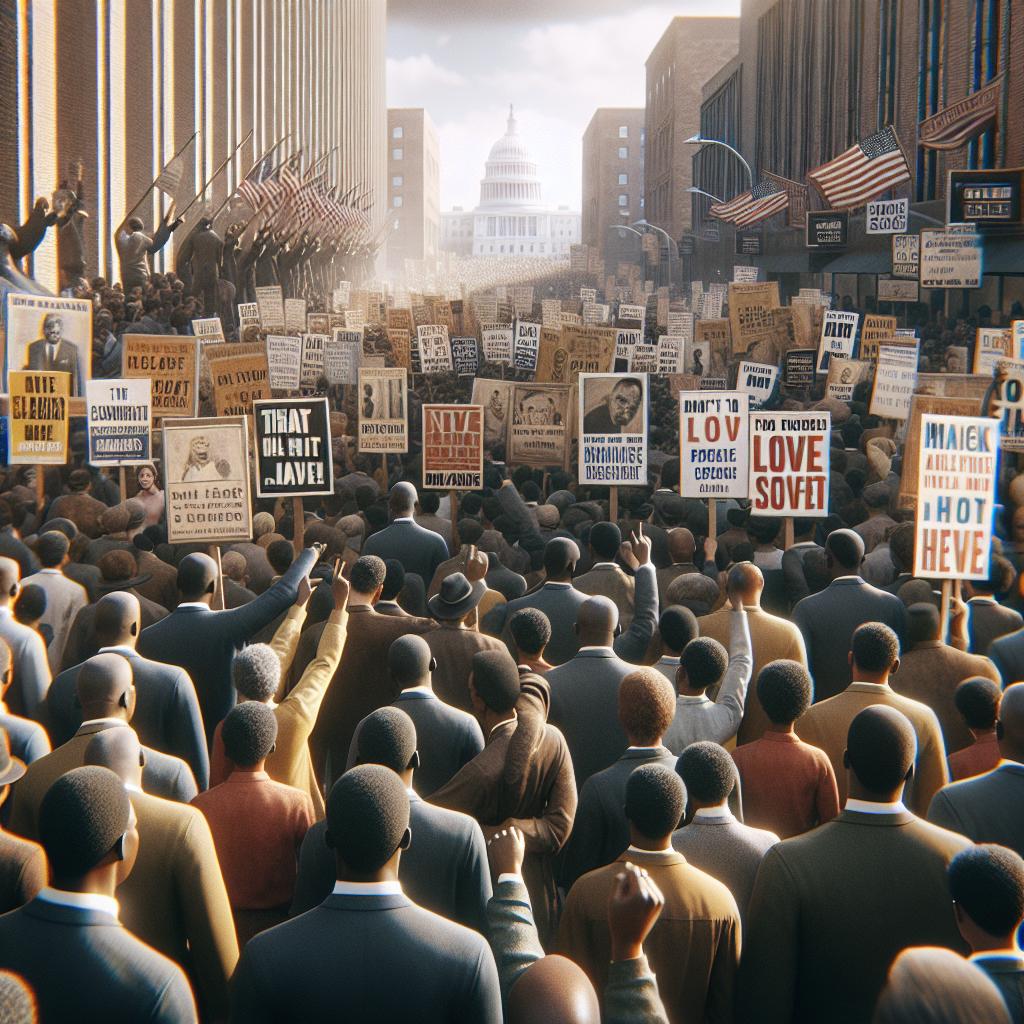

1968 Civil Rights Protest Scene
In the history of civil rights in America, February 8, 1968, left an indelible mark as South Carolina State Troopers opened fire on student protesters, leading to the tragic death of three South Carolina State College students – Samuel Ephesians Hammond Jr., Henry Ezekial Smith, and Delano Herman Middleton. This infamous event became known as the Orangeburg Massacre.
The incident emerged from a protest against racially discriminatory practices at the All-Star Bowling Lane which denied service to African-American students. When police arrived to arrest the protesters, it led to a chaotic scene dominated by egregious actions by law enforcement officers who resorted to physical violence. Outraged, the students decided to light a bonfire on their college campus.
Upon receiving news about the bonfire, authorities rushed to the scene. Tragically, an object thrown from the crowd wounded an officer, which resulted in a horrifying reaction. State troopers, without any discernible discretion, began firing at the unarmed crowd, ending the lives of three young students and injuring fifty others.
Following the utterly tragic event, the governor, ignoring the wanton violence displayed by state troopers, sought to blame “outside agitators.” The federal government subsequently charged the nine troopers involved with excessive use of force. Despite the severity of the incident, the jury exonerated the troopers, accepting their claim of self-defense.
However, in a contrasting verdict, activist Cleveland Sellers was convicted of a riot charge related to the bowling alley protests leading him to serve seven months in prison. The overt disparity in the treatment of the agitating students and the officers was a stark reminder of the racial prejudices embedded in the American justice system.
The violence and the subsequent court decisions set a distressing precedent, which was soon to be followed with fatal shootings at Kent State University and Jackson State University. The Orangeburg Massacre, as it was soon named, became a chilling reminder of the extensive battle for civil rights and the terrifying lengths some would go to oppress it.
Subsequently, the college campus arena got renamed in honor of the deceased students, a faint glimmer of justice in an otherwise dark narrative. Jack Bass, the co-author of the book “Orangeburg Massacre,” called upon South Carolina to follow Florida’s precedent for handling the Rosewood Massacre. He urged the state to provide financial aid to the deceased’s surviving children and scholarships to their grandchildren. “Perhaps,” he insightfully wrote, “it is time now for South Carolina to clear its conscience.”
As we look back on this day in 1968, the Orangeburg Massacre continues to stir conversations about racial bias and the struggle for equality. It underscores the necessity of continually striving for justice, truth, and racial harmony, reminding us that the fight for civil rights is ongoing, and our collective efforts remain pertinent more than ever.
News Summary South Carolina faces a challenging week with wildfires raging, particularly in the Carolina…
News Summary Residents of Columbia and Lexington Counties are being urged to prepare for severe…
News Summary On March 7, 2025, Columbia, South Carolina, witnessed its first execution by firing…
News Summary A peaceful community in Horry County was shaken by a shooting incident that…
News Summary Rusty Harris has transitioned from Enbridge Gas North Carolina to lead Enbridge Gas…
News Summary On January 30, 2025, the South Carolina Manufacturers Alliance launched the 2025 Vision,…